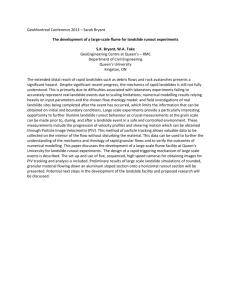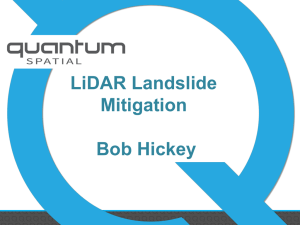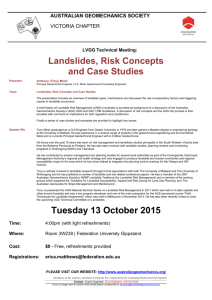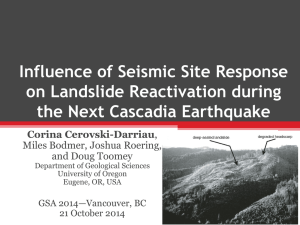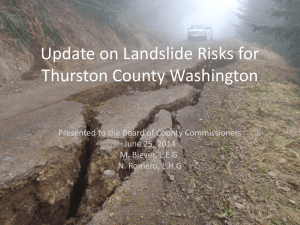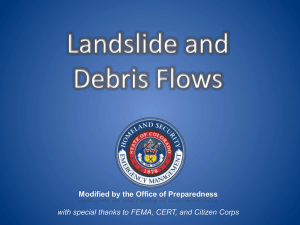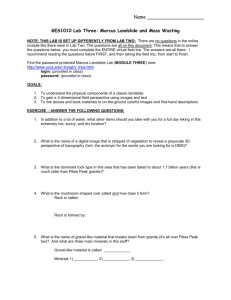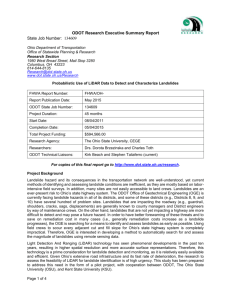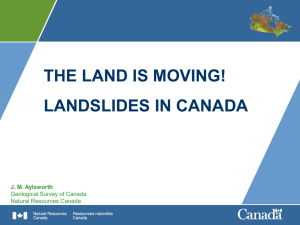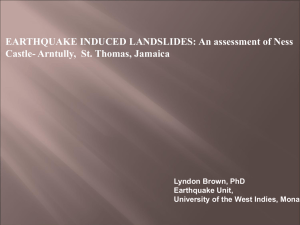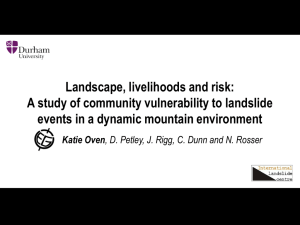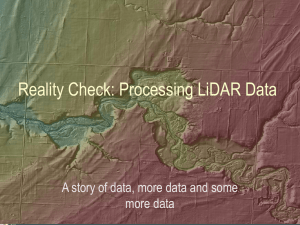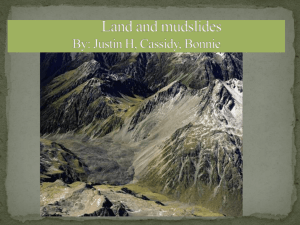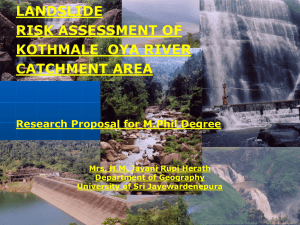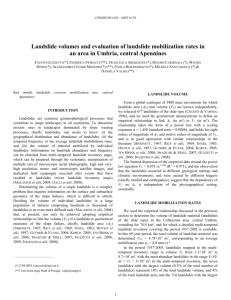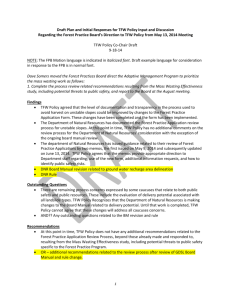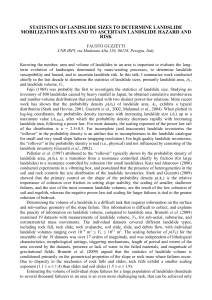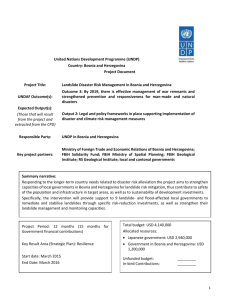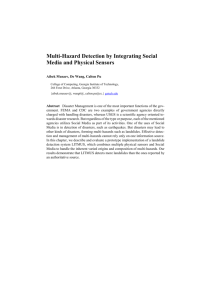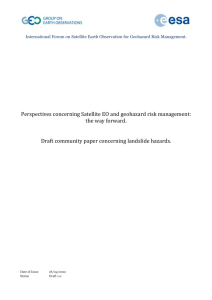Using LiDAR to Map Landslides in Kenton and
advertisement
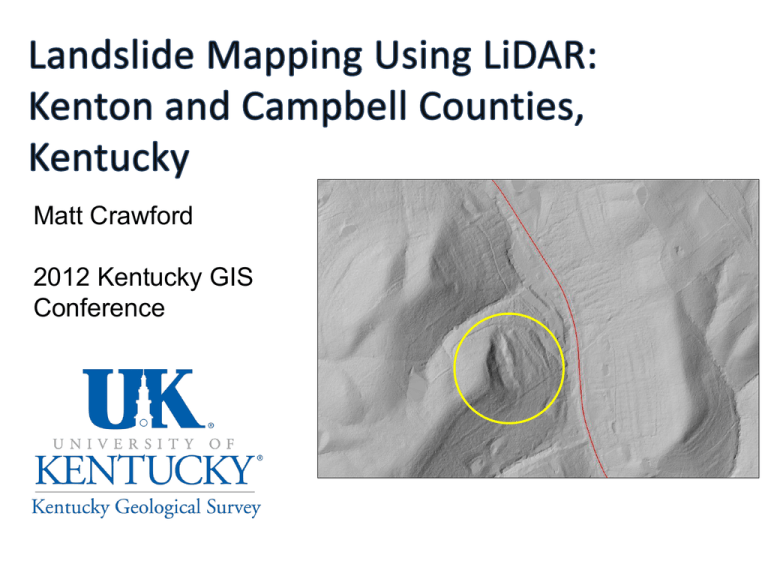
Matt Crawford 2012 Kentucky GIS Conference Kentucky landslide locations Kenton and Campbell Counties, KY Cincinnati The problem Natural geology, topography, and decades of slope modification make Kenton and Campbell Counties susceptible to landslides. Example costs: • 71 landslide geotechnical reports from KYTC…unknown cost, 1970-present • 57 landslides located from other sources • April-May 2011 storms cost KYTC District 6 over $4 million • FEMA is about to submit a letter of intent for a 2.5 million dollar stabilization project in Bellevue, Ky. Campbell Co. involving 30 homes. Landslide types and geology From the Newport and Withamsville quadrangle by Gibbons (1973): From the Newport and Withamsville quadrangle by Gibbons (1973): From Potter, 1996 “The shale of the Kope Formation slumps readily when wet. Structures built on the Kope should be provided with adequate drainage and oversteepened slopes should be avoided.” Kenton and Campbell Co., landslides Creep and generations of failure Kenton and Campbell Co. landslides Kenton and Campbell Co. landslides The project: Landslide mapping using Light Detection and Ranging (LiDAR) • Purpose: develop a methodology using LiDAR data in the geologic setting of Kenton and Campbell Co. and to document landslides • LiDAR flown in 2007. Data provided by the NKAPC (1m) • Completed March 2011, grant from the USGS Landslides Hazards Program Methodology • Used Applied Imagery’s Quick Terrain Modeler to create bare earth hillshade DEM’s from the LAS files • Add DEM’s to ArcMap for visualization, spatial analysis, and digitization • Systematic panning looking for Hummocky surface Steep scarp, flanks Thick toe Concavity • Reexamined potential landslides in QTM • Field checking Example: LiDAR derived hillshade DEM with contours Mapped landslide Example: LiDAR derived hillshade DEM without contours Mapped landslide Example: LiDAR derived hillshade DEM with contours Mapped landslide Example: potential landslide identified on LiDAR derived hillshade DEM. Azimuth and sun angle at 45o Three-dimensional view of the same landslide in Quick Terrain Modeler. Changing the sun angle and azimuth can make the scarp and flanks stand out. The image was rotated in 3D and the azimuth was changed to 225°. Other useful data sets • Topographic contours • 1:24,000-scale geology • Slope • Leaf-off aerial photography • Roads • Bing! Field checking Results • 230 potential landslide extents digitized (polys) • Approximately 10% were initially attributed with high confidence, rest were questionable • 45 landslides (approx. 40%) of landslides were field checked 20 were confirmed 18 were likely or observed but could not be determined 7 were not accessible Why is this important? Preexisting slides as indications of subsequent failure 3 separate incidences of failure after slope was mapped with landslide from LiDAR!!!! Mudslide/debris flow in Bellevue, KY. Campbell Co. December 2011 Another example of subsequent failure November 2011 Future work • As more LiDAR becomes available numerous landslide hazard projects can be considered. Formalize and add to landslide inventory database Create landslide inventory maps>>>>help reduce landslide risk!! KY LiDAR acquisition Conclusions • Project successfully used LiDAR for identifying potential landslide extents in Kenton and Campbell Counties • Able to map slides in areas not accessible by roads. • Urbanization made visualization difficult and probably masked many other existing slides • Project was limited by time and ability to field check landslides • Mapping preexisting landslides is an indication of areas susceptible to future slope failure. • As Kentucky acquires more LiDAR, similar projects will be very beneficial in other landslide prone parts of the state. Thank you! Matt Crawford mcrawford@uky.edu Report - http://kgs.uky.edu/kgsweb/findpubsmain.asp
